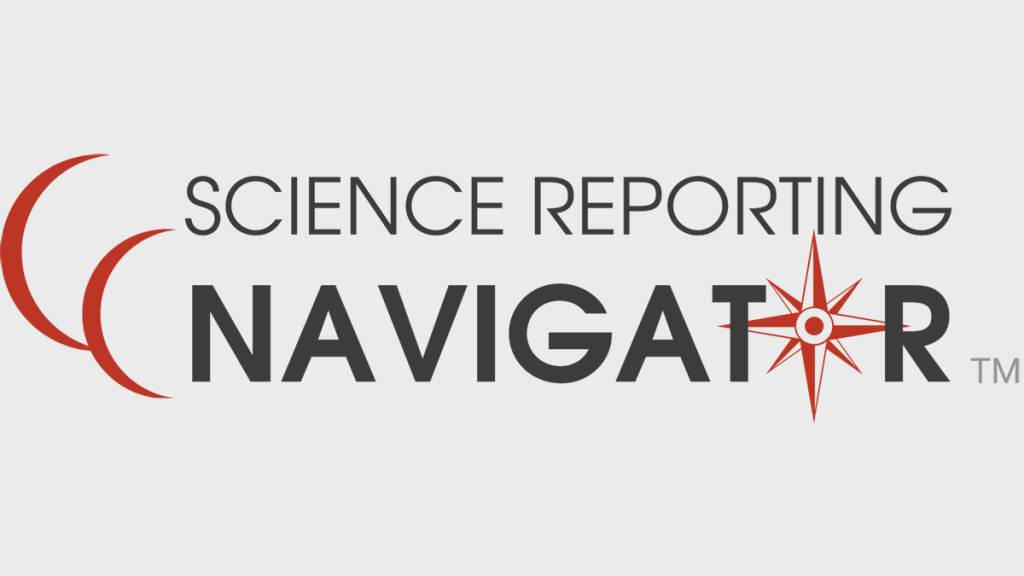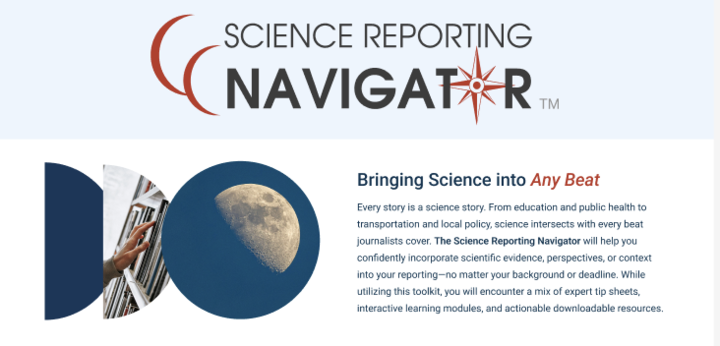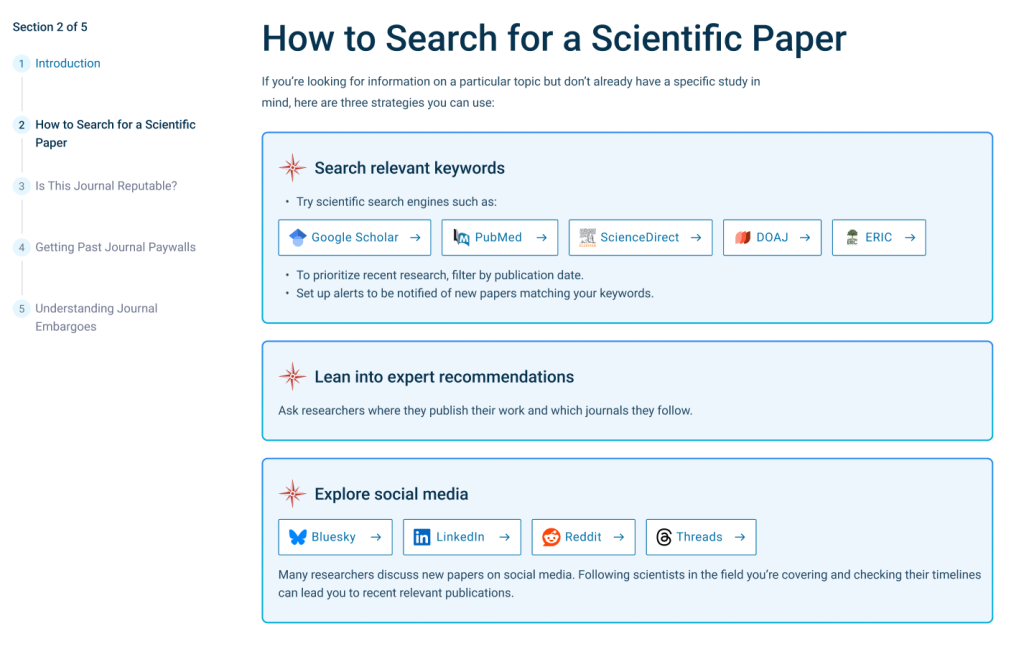
Scientific evidence belongs in any beat
Our interactive toolkit is almost ready for beta testing
We’ve been hard at work developing an interactive toolkit to help journalists on any beat bring more scientific evidence and context into their stories. This free resource, the Science Reporting Navigator, is being produced through a partnership between The Open Notebook and the Reynolds Journalism Institute.
This toolkit stems from our core belief that science isn’t just a specialty beat. Grasping scientific evidence is fundamental to tackling virtually every major challenge society faces—climate change, food insecurity, health disparities, the explosion of AI, and more. Journalists have a responsibility to inform their readers of how that evidence plays into the issues impacting their daily lives.
We understand that local and community reporters are increasingly strapped for time. So, our course will meet you where you are, directing you to the advice you need in the most efficient way possible.
That’s why you’ll get to choose how you interact with our lessons:
- Pick a learning path—whether you’re covering a breaking news event, investigating a longstanding issue in your community, covering a new study from a local institution, or exploring the impact of a proposed policy.
- Or, work through the lessons systematically, according to your interests and needs.

In both options, we’ll walk users through 10 common reporting situations and point them to the specific advice and resources they need. For example, our lesson on finding scientific papers will help you search for papers on any topic, navigate journal paywalls, vet journals, and understand how embargoes work.
We also have lessons that go beyond science reporting basics, covering complex skills such as critically evaluating scientific claims. Through this lesson, reporters will learn how to deconstruct a science-related claim from an industry PR firm or elected official, get to the root of numbers and statistics in claims, and spot pseudoscience.
With the Navigator, users will learn how to best communicate with scientist sources, navigate statistics and how to find the science in any story. Each lesson is packed with interactive elements, such as quizzes and matching games, to check your understanding along the way, as well as take-home resources including downloadable templates and checklists.
Preview the Science Reporting Navigator at our May 21 webinar
Come meet the teams from RJI Innovation and The Open Notebook building this course. We look forward to sharing a sneak peek of the Science Reporting Navigator with the journalism community and gathering your feedback to help us polish this resource before it’s ready to be used.
Date: May 21 @ 11 a.m. CT
We’re particularly excited to share our initial toolkit design with you, thanks to the team of talented designers and developers at Relief Applications. As we move through the development process, we’ll be readying the Science Reporting Navigator for a beta testing phase—if you’d like to, sign up here to be a tester when we’re ready. The full course is slated to go live in July.
Cite this article
Zamzow, Rachel (2025, May 14). Scientific evidence belongs in any beat. Reynolds Journalism Institute. Retrieved from: https://rjionline.org/news/scientific-evidence-belongs-in-any-beat/


